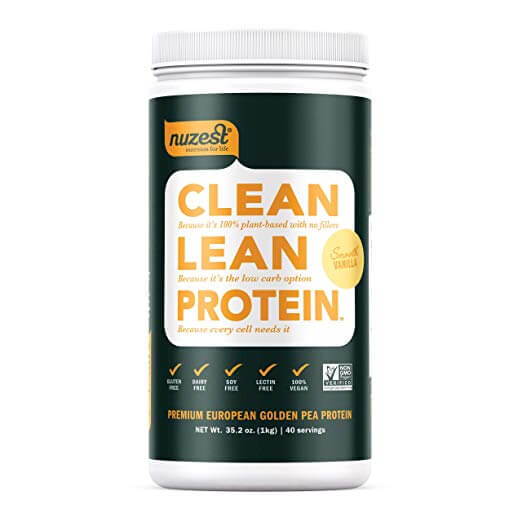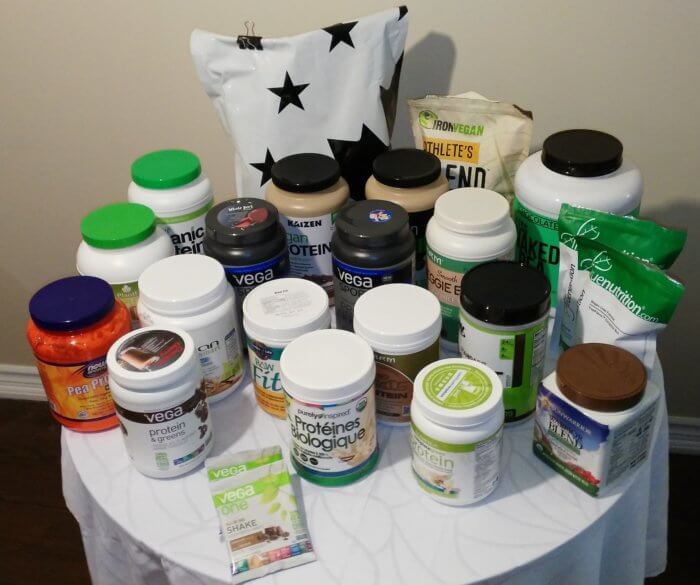
Over the past few years, I’ve tested over 30 different products to try and find the best vegan protein powder.
But the aspect that most people care about most is taste – what good is a protein powder if you don’t want to drink it?
While taste is subjective, I followed a standardized testing process to be as fair as possible, and tried several samples of each protein powder. (I did a similar thing to find the best vegan protein bar if you’re interested).
My Top Picks:
-
1
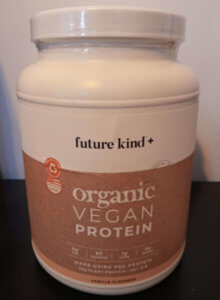
Overall Best Tasting Vegan Protein Powder
Future Kind Organic Vegan Protein Powder
-
2
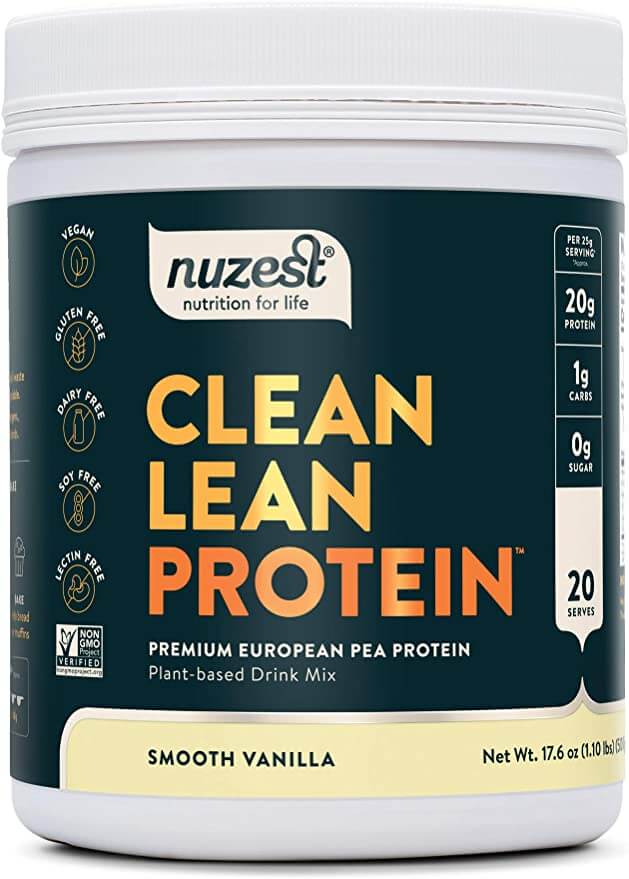
-
3
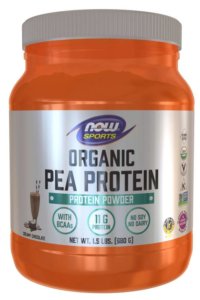
-
4
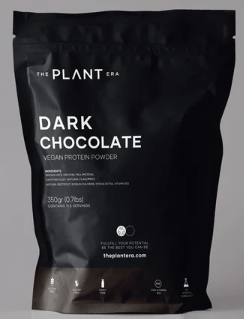
How Do You Measure Taste?
As part of my overall testing procedure, there are 2 components related to taste:
- How well a protein powder mixes
- How good the flavor tastes
The first of those is easy to measure objectively by using a specific amount of protein powder, shaking for a specific time, and then weighing any clumps. Clumps in a shake make a big difference in the taste.
In terms of flavor, this is of course subjective. While I’ve tried to be as unbiased as possible, I still have inherent preferences that may be different from you.
Still, at least you can probably rule out any of the terrible ones from your consideration.
Best Tasting and Overall Value: Future Kind Vegan Plant Protein Powder
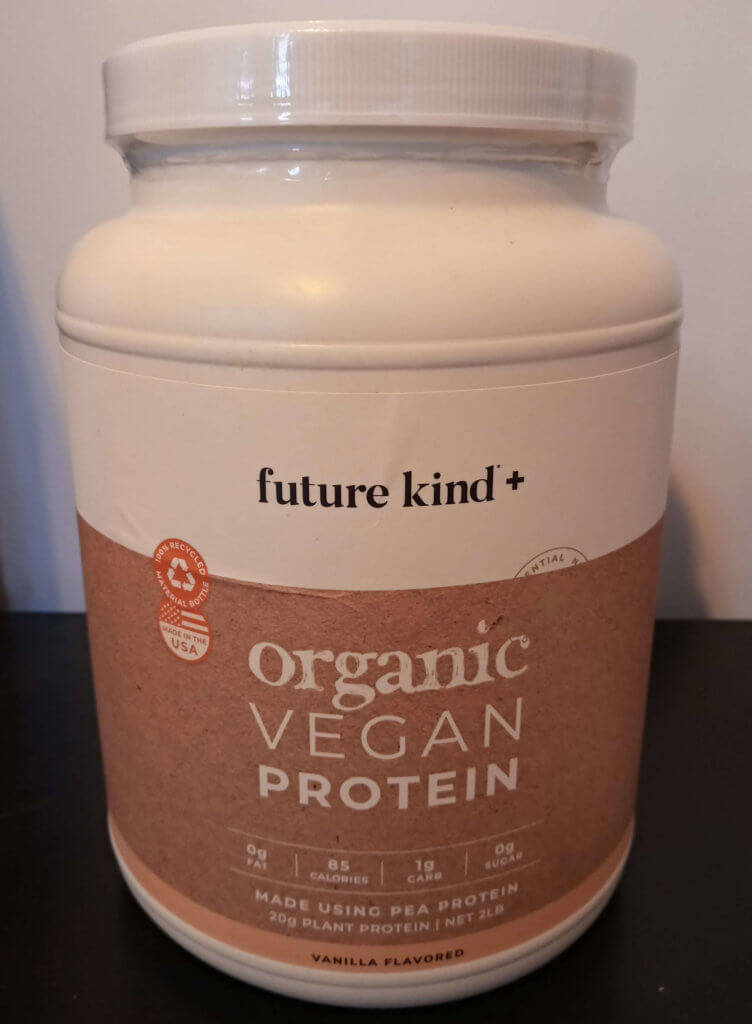
Per serving: 85 calories | 20g protein | 1g carbs (0g sugar, 1g fiber)
Pros:
- It tastes very good, and doesn’t even have any sugar
- Mixes perfectly with no weird aftertaste
- Affordable
Cons:
- Only comes in chocolate and vanilla
Bottom Line:
Future Kind is the best overall vegan protein powder (on top of best tasting) as far as I’m concerned. I enjoyed drinking this powder even in water.
I’m a fan of the company in general, they make only vegan products, and always use high quality ingredients.
In addition, this protein powder contains a significant amount of iron, something vegans often lack, and all the ingredients are organic (if that’s something you care about).
It’s been a while, but I think it was better than any whey protein that I had in the past.
Get a 10% Discount with coupon code ‘BEKIND10’
Best Tasting (if budget is no option): Nuzest Clean Lean Pea Protein
Per serving: 90 calories | 20g protein | 2g carbs (0g sugar, <1g fiber)
Pros:
- Best flavor of any protein powder I’ve tried
- Uses the natural sweetener thaumatin instead of stevia
- The pea protein is sourced from Europe, not China, which is where most other companies source from
Cons:
- The most expensive vegan protein powder I tried
Bottom Line:
Even though Nuzest arguably edges out Future Kind in terms of flavor by itself, I didn’t put it at the very top of the page just because I think it’s out of most people’s budgets (significantly more expensive than every other option).
It has 20 grams of protein and just 90 calories – about as high of a percentage as you can get
Nuzest mixes well, and it has a smooth, slightly foamy texture.
Overall, Nuzest is a really good option if product quality is your biggest concern. But if cost is a factor, you can get more value from other options.
Best For Building Muscle: PlantFusion Complete Plant Protein
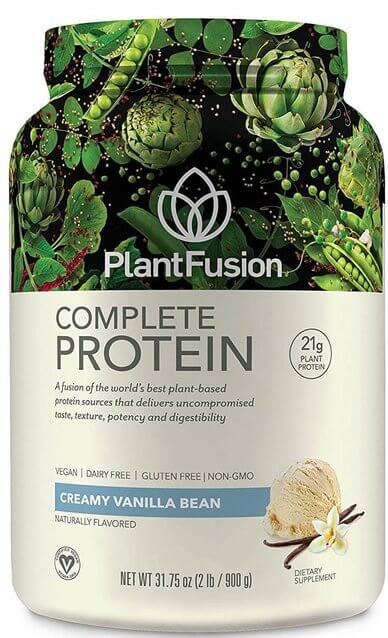 Per serving: 120 calories | 25g protein | 2g carbs (0g sugar, <1g fiber)
Per serving: 120 calories | 25g protein | 2g carbs (0g sugar, <1g fiber)
Pros:
- Good taste, and no weird aftertaste
- Has a nice blend of pea protein and added BCAAs to balance the amino acids
- Very smooth (the grains seem much smaller than other powders)
- A bit frothy (but in a way I enjoyed)
Cons:
- There’s nothing wrong with the taste, it’s just not “great”
Bottom Line:
PlantFusion was originally my #1 pick overall when I did my first round of testing, and it remains up around the top options today.
Originally it tasted better, but they reformulated it to take out sugar (sacrificing a bit of taste to make it healthier).
While I think BCAAs are a bit over-hyped when it comes to bodybuilding, having extra BCAAs certainly isn’t going to hurt your results.
Best Tasting on a Budget: NOW Sports Pea Protein
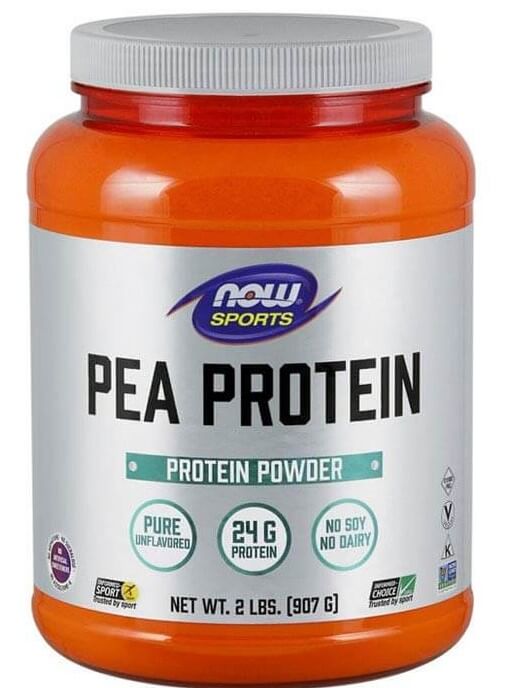
Per serving: 120 calories | 20g protein | 1g carbs (0g sugar, 0g fiber)
Pros:
- Best price you’ll find for pea protein
- No filler ingredients, just pea protein
- Taste is relatively good when you consider the price
Cons:
- Taste is not amazing
- Mixes well, but some clumps
Bottom Line:
As such, it’s protein per serving compared to calories is about as good as possible. It’s the best unflavored plant based protein powder that I tried.
It does have a bit of a taste and smell, but not much of one, and it mixes better than average. I wouldn’t particularly recommend drinking it by itself in water, but I enjoyed cooking with it and putting it in smoothies (it barely affects the taste).
Best Tasting Organic: The Plant Era Organic Vegan Protein Powder

Per serving: 120 calories | 21g protein | 2g carbs (<1g sugar, 1g fiber)
Pros:
- Solid dark chocolate flavor profile
- Reasonably priced for an organic powder
- Minimal ingredient list, no added sugar (sweetened with stevia).
- Has iron (6.5 mg per serving) and 50% of DV of vitamin B12
Cons:
- Somewhat chalky texture (compared to Future Kind or Nuzest)
- Flavor takes a bit to get used to
- Only comes in dark chocolate and strawberry-basil flavors
Bottom Line:
At first I wasn’t a huge fan of The Plant Era’s organic dark chocolate powder, but it quickly grew on me.
The flavor is a lot like a 70-80% dark chocolate bar, so if you’re used to eating sweetened chocolate (or drinking sweeter protein shakes) it can take a few shakes to get used to.
Organic Runner Up: Orgain Organic Plant-Based Protein Powder
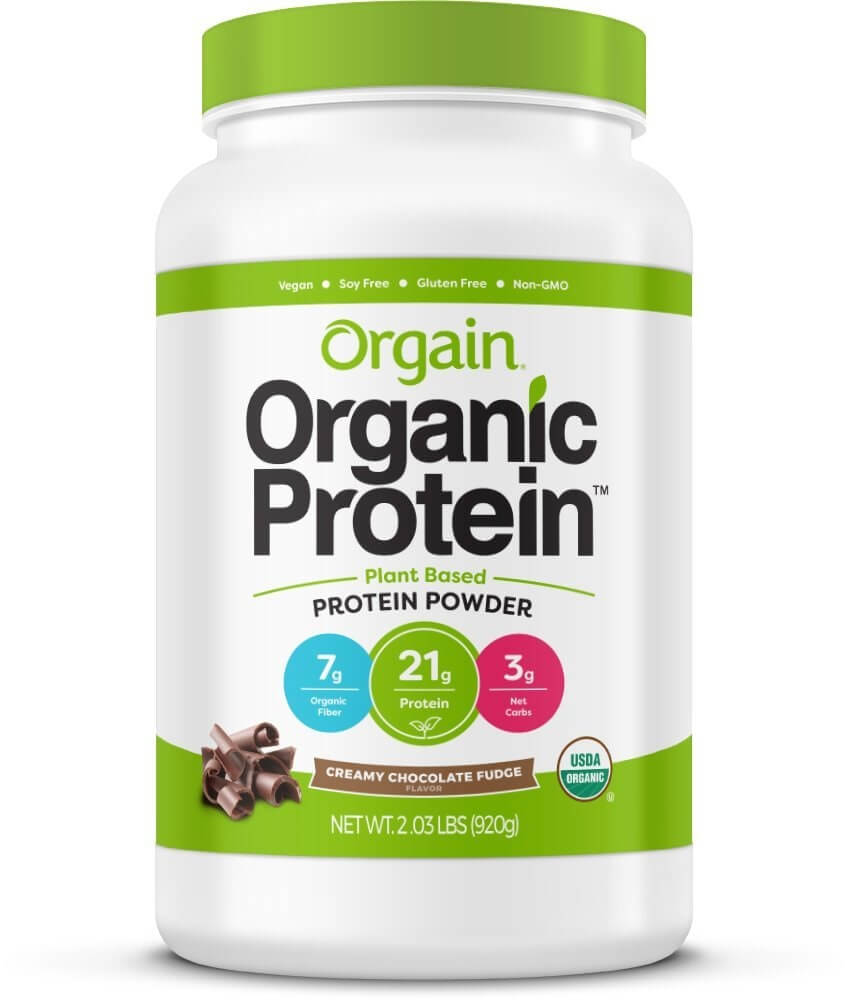
Per serving: 150 calories | 21g protein | 15g carbs (0g sugar, 7g fiber)
Pros:
- Mix of pea protein, brown rice protein, and chia seed protein.
- Pretty good flavor
Cons:
- Quite a bit of chalkiness
- Significant (not too bad) aftertaste
Bottom Line:
Orgain Organic Protein is about as good as you’re going to get for an organic protein powder, most are just terrible.
It’s a decent alternative to The Plant Era if you don’t like the limited flavors it comes in.
Best Tasting For Weight Loss: True Nutrition Vegan Lean
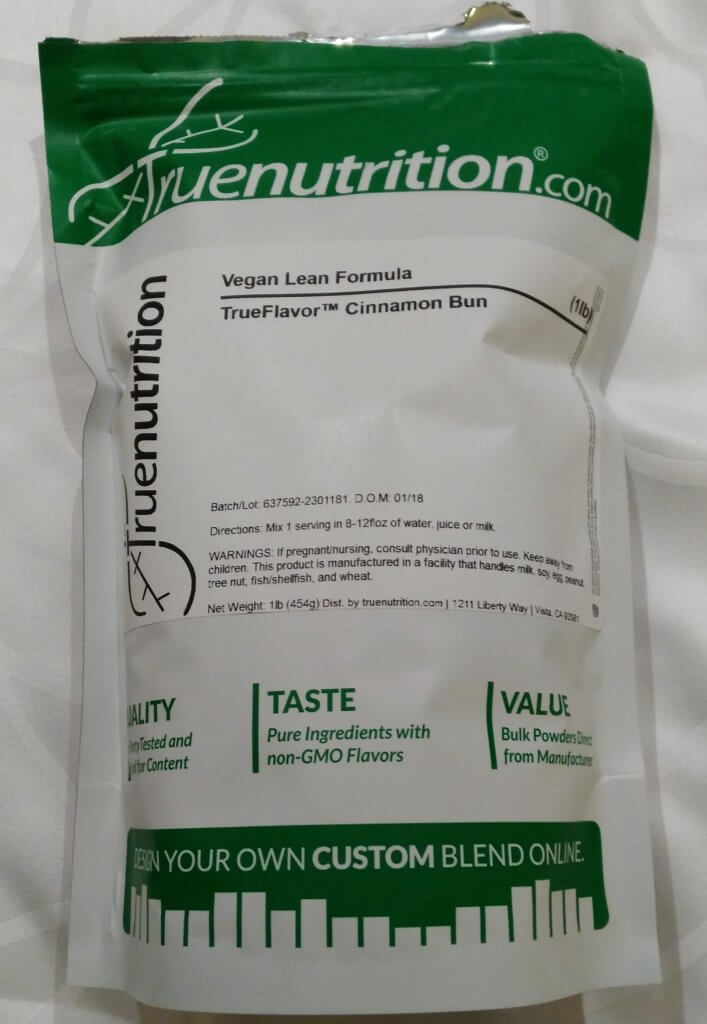
Per serving: 117 calories | 23g protein | 2.6g carbs (0.1g sugar, 2.1g fiber)
Pros:
- Can buy in bulk to save a bit
- Blend of pea and rice protein powder
- High protein to calorie ratio (only Nuzest beats it)
- Good flavor
Cons:
- Bit of chalky texture
- Minor aftertaste
Bottom Line:
This protein powder tastes really good and is fairly affordable. You can buy in bulk and save another 5% off with our coupon code (“VPLAB”).
If you’re trying to lose weight, you want a protein powder supplement with as high of a protein content as possible, and as few calories from fats and carbohydrates.
In terms of protein quality, Vegan Lean consists of both pea protein and rice protein, so you get all your essential amino acids in good proportions.
Best Tasting Raw: Garden of Life Raw Fit
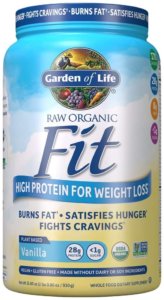
Pros:
- One of the few “raw” vegan protein powders out there
Cons:
- Flavor is not great (but “drinkable”)
- Strong chalky texture
- Unpleasant aftertaste
Bottom Line:
It’s one of the few raw options out there currently for vegans, and it’s not terrible if you’re set on getting a raw shake – it’s just not going to taste amazing.
Mixing your shakes with fruits and in a blender will help quite a bit.
Healthiest and Most Digestible: Naturade VeganSmart
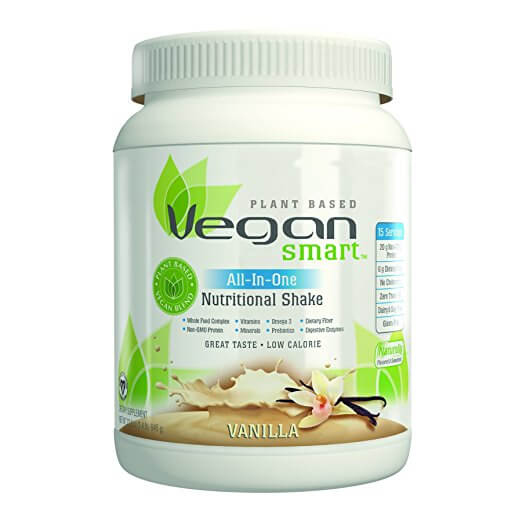
Per serving: 160 calories | 20g protein | 14g carbs ( 4g sugar, 6g fiber)
Pros:
- Contains prebiotics and digestive enzymes
- Good texture, not very chalky at all
- Bit of a bland flavor, but decent
Cons:
- A small aftertaste.
Bottom Line:
The real draw of VeganSmart is clear when you see its ingredients:
- Complete Protein Blend (good balance of amino acids) – Pea Protein Isolate, Quinoa Protein, Chia Protein, Potato Protein, Chlorella Protein
- Fiber & Omega Blend – Inulin, Flax Seed Powder, Bamboo Fiber, Pea Fiber, Apple Fruit Fiber, Borage Oil
- Vegan Energy Blend – Organic Cane Sugar, Sunflower Oil, Medium Chain Triglycerides, Organic Rice Syrup Solids
- Whole Food Complex – Apricot, Mango, Raspberry, Carrot Root, Pineapple, Broccoli, Cabbage Leaf, Beet Root, Spinach Leaf
- Digestive Enzyme Blend – Bromelain, Protease, Amylase, Lipase
- Prebiotics – Aloe Vera Inner Leaf
- Other – Natural Flavors, Organic Stevia, Xanthan Gum
The prebiotics and digestive enzymes should help you digest your shakes better and hopefully minimize bloating and gas. This is great for any vegan with stomach problems like IBS.
Side note about prebiotics vs probiotics – Probiotics are the actual “good” bacteria in your gut that break down food. Prebiotics (in this shake) are essentially dietary fiber that feed those probiotics to encourage them to grow. Both are considered healthy diet additions for most people.
This is more of a meal replacement shake, which is why the ratio of protein to calories isn’t amazing.
Best Tasting in Canada: Canadian Protein All Natural Blend
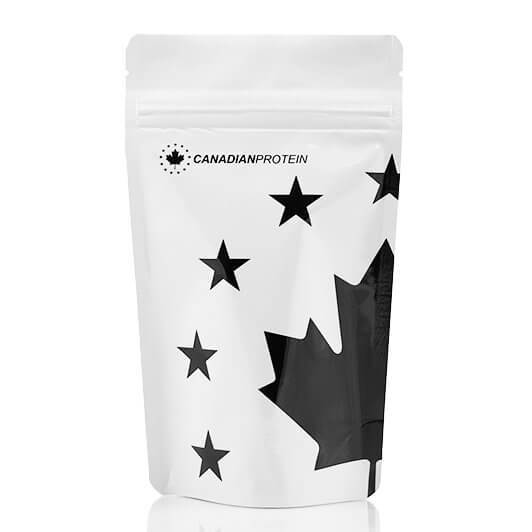 Per serving: 126 calories | 21g protein | 6g carbs (3g sugar, 2g fiber)
Per serving: 126 calories | 21g protein | 6g carbs (3g sugar, 2g fiber)
Pros:
- Quite affordable (you can buy in bulk to make it even cheaper)
- Pretty good taste overall
- Blend of multiple plant protein powders
Cons:
- The stevia sweetness is a bit strong
- There’s a small amount of chalkiness.
Bottom Line:
Since I’m Canadian, it made sense to find the best vegan protein powder in Canada, and this was clearly it.
Neither of the cons above are major issues, and I still buy it sometimes (there’s a few others I rotate through).
It has pea protein, hemp protein, and brown rice protein, so you get a super balanced essential amino acid profile.
Best Tasting in UK: The Protein Work’s Vegan Protein
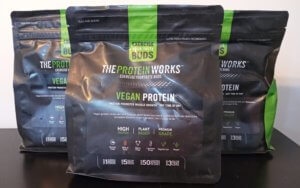
Pros:
- Tastes amazing
- Great price
- solid protein blend (soy, hemp, pea, sunflower, brown rice)
Cons:
- Shipping to North America is quite expensive
Bottom Line:
I also did additional testing in order to find the best vegan protein powder in the UK, and the best one was clearly from The Protein Works.
This is my favorite of any vegan powder I’ve tried; If the shipping fees weren’t so high to get it to Canada, I would buy this on a regular basis.
Common Questions About Vegan Protein Powder
How Do You Make Dairy-Free Protein Powder Taste Better?
To make vegan protein shakes taste better, make sure you are mixing them thoroughly to reduce clumping, and combining protein powder with some sort of sweetener.
You can use natural sweeteners like fruits in smoothies to mask the taste of protein powders, or add sugar or a zero-calorie sweetener like Stevia to the protein powder directly if you don’t have access to a blender.
Which Plant Protein Powder Source Tastes the Best?
Most products contain one or more of pea protein, hemp protein, and brown rice protein. It’s clear from my testing that pea protein tends to mix and taste the best, while hemp and brown rice protein powder taste worse. The latter have more of an earthy flavor and tend not to mix as well. If you don’t like the taste of a vegan blend, look for one that is pure pea protein only (with some flavoring ingredients).
How Do You Get Rid of Clumps in Vegan Protein Shakes?
You can’t do much about the taste of a plant based protein powder itself. However, one factor is in your control – the clumps.
The key to making your protein shakes taste as good as possible is to make them mix well, otherwise you’ll have clumps that typically taste gross.
After a lot of testing, I’ve learned how to mix powders as well as possible:
- Shake it for at least 30 seconds, more is better
- Use room temperature liquid instead of cold liquid
- Water often dissolves protein powder better than almond milk
- Put the liquid in FIRST, then the powder (makes a big difference, don’t know why)
- Use a blender or a shaker bottle with a metal (not plastic) mixer
Additionally, you can add other ingredients to your protein shake like fruit (make a smoothie), or artificial sweeteners.
If you’re bulking, many bodybuilders often make a meal replacement shake by adding foods like peanut butter, hemp seeds, and chia seeds, which mask the taste of any protein powder.
Is Vegan Protein Powder as Effective as Whey Protein Powder?
In terms of building muscle, current research suggests that vegan protein powder is just as effective as whey protein powder. See a full research summary in my post on vegan vs whey protein.

My #1 Pick: Future Kind Vegan Protein
A great tasting plant-based protein powder with the highest protein content of any shake I tried. 3rd party tested for issues like heavy metal content.
